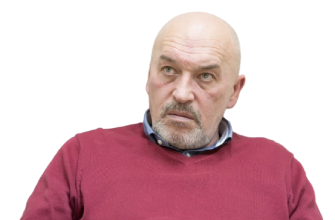Almost 530,000 people living in the temporarily occupied areas of Donetsk and Luhansk regions have obtained Russian citizenship by a streamlined procedure, according to the Russian Ministry of Internal Affairs. Although in reality the number of Ukrainian citizens who chose to obtain a Russian passport is most likely somewhat lower – around 400,000-450,000, there's no guarantee these numbers won't further grow. They will, gradually.
Since the onset of the naturalization process, Moscow has been rather unhappy with its pace: the Kremlin initially counted on long queues of applicants dreaming of receiving their red-cover passport, but the reality was totally different. When I was still part of the ministry, we would receive screenshots of official documents compiled in Rostov, addressed to the so-called "LPR/DPR" leaders, directly ordering that the military with the 1st and 2nd army corps, law enforcers, civil servants (their families included) be included in the list of applicants for Russian passports. Those failing to fulfill this order could actually lose their job!
Residents of the occupied areas in Donbas who obtained Russian passports can hardly be referred to as full-fledged Russian citizens
Therefore, on the one hand, it cannot be ruled out that, step by step, some new restrictive measures will be introduced, coercing people to get their Russian passport. For example, in Donetsk a new order has been issued regarding local retirees. In order to receive social benefits from Russia (it is called a "DPR pension", but in fact it's not legally the case), they are now obliged to present at the pension fund a written certificate confirming that they receive no pension in government-controlled Ukraine. In the same way, other restrictive measures of this kind could be introduced, this time unrelated to pensions, but concerning Russian passports.
However, residents of the occupied areas in Donbas who obtained Russian passports can hardly be referred to as full-fledged Russian citizens. First, citizenship is granted by presidential decree, not by handing out passports. Secondly, the passports issued to Ukrainian citizens living in the temporarily occupied territory of Donbas, there is no entry on registration of the place of residence. Thus, all these people remain in legal limbo (although some hustlers are already selling fake registrations). Thirdly, people in the occupied parts of eastern Ukraine who have received Russian passports have no right to vote in Russia as they are not assigned to any polling station.
On the other hand, there are still people in Ukraine who have long dreamed of becoming Russian citizens, and we can't turn a blind eye to this fact. There are such people across the country, including in Kyiv, Odesa, and Lviv...
There are still people in Ukraine who have long dreamed of becoming Russian citizens, and we can't turn a blind eye to this fact
In general, the process of passportization in the occupied territories is a gross violation of international law and human rights, as stated by Ukrainian authorities and Ukraine's international partners from the moment the process was launched in 2018. But what's the ultimate goal the Russian leaders are pursuing? How many passports do they intend to issue in Donbas? There is no exact data. Most likely, the goal is to cover some 70-80% of local population.
This is being done in order to add political weight to the passportization process as such. And this will play a significant role when Russia appeals to the fact that "the overwhelming majority" of people in the occupied areas are holders of Russian passports. In the future, the issue can be easily and widely manipulated for various political purposes.
For Ukraine, these Russian passport holders will pose a major problem in the future. Further passportization of the occupied areas in eastern Ukraine will have threatening political implications for Ukraine. Their vivid example can be observed in the neighboring Moldova.
For Ukraine, these Russian passport holders will pose a major problem in the future
When Maia Sandu was elected President of Moldova, she announced that she would insist on the withdrawal of "peacekeepers" from the territory of Transnistria. In response, one of the Russian senators tweeted that 240,000 Russian citizens live there, also recalling that Russia is poised to defend the interests of its citizens anywhere around the globe, so Moscow couldn't care less about the statements voiced on the issue "by some president."
Ukraine will be facing pretty much the same kind of developments in Donbas as well. After all, Russia will now get "legitimate grounds" to protect its citizens, up to and including the use of regular Russian military forces.
George Tuka is a former deputy minister for the temporarily occupied territories and internally displaced persons, ex-head of the Luhansk Region's Military and Civilian Administration


